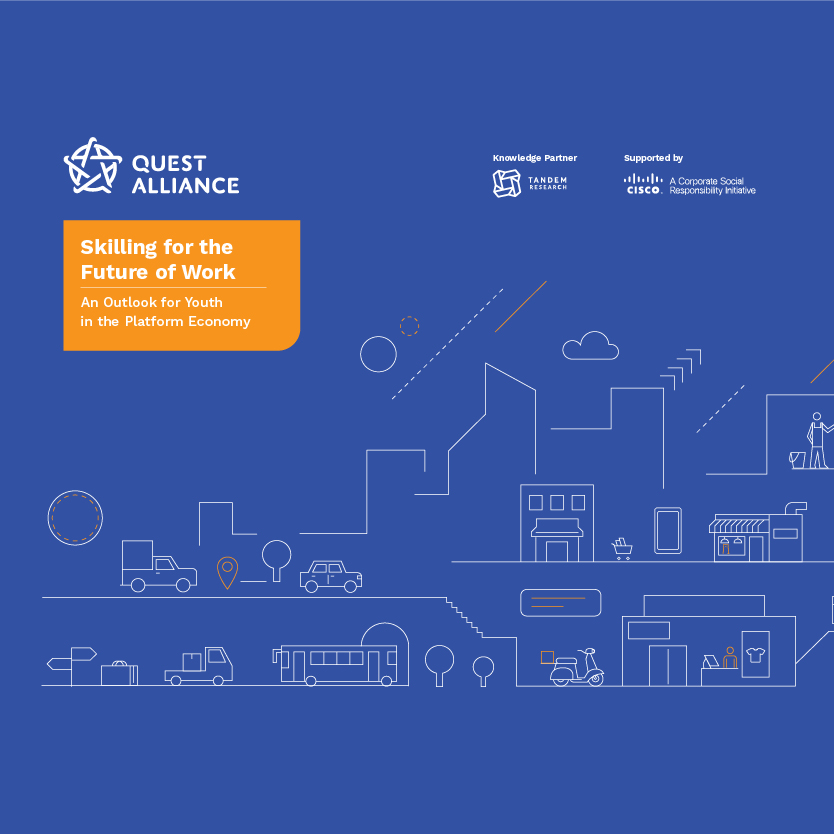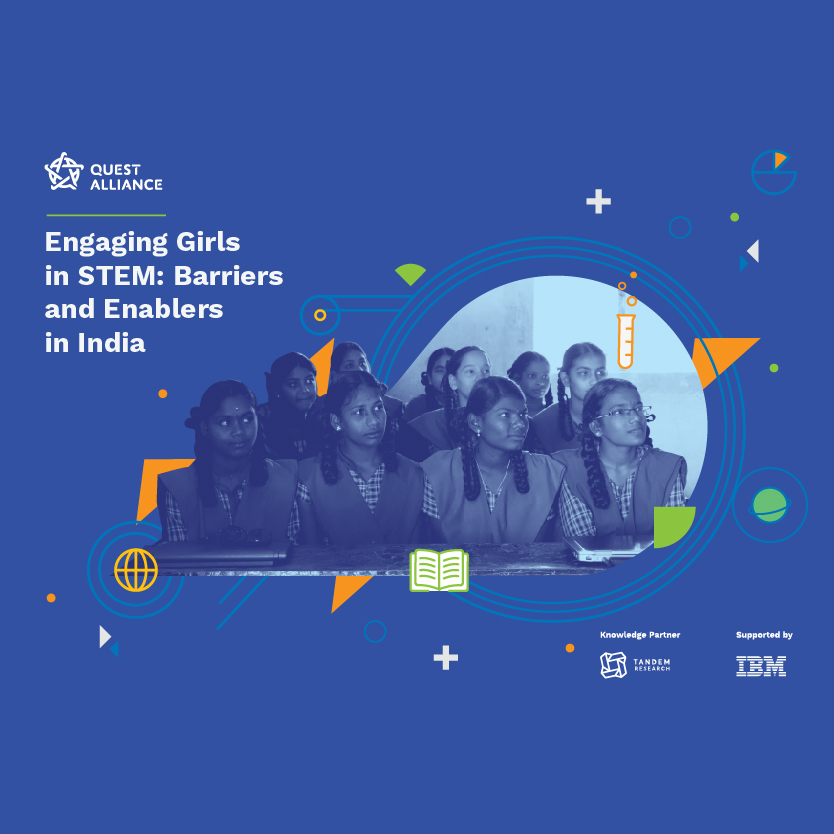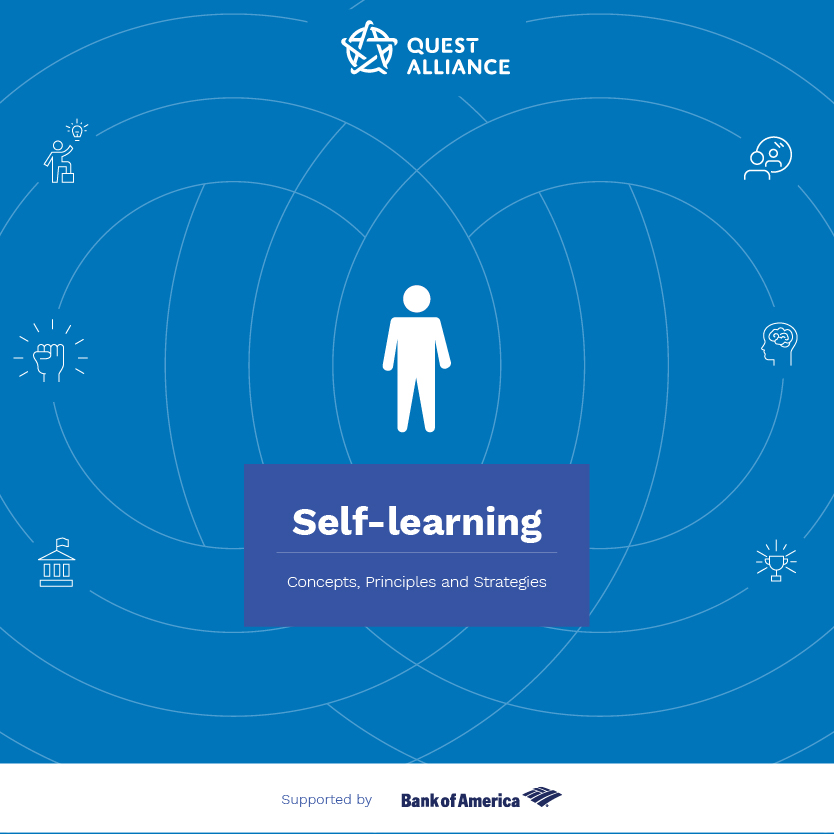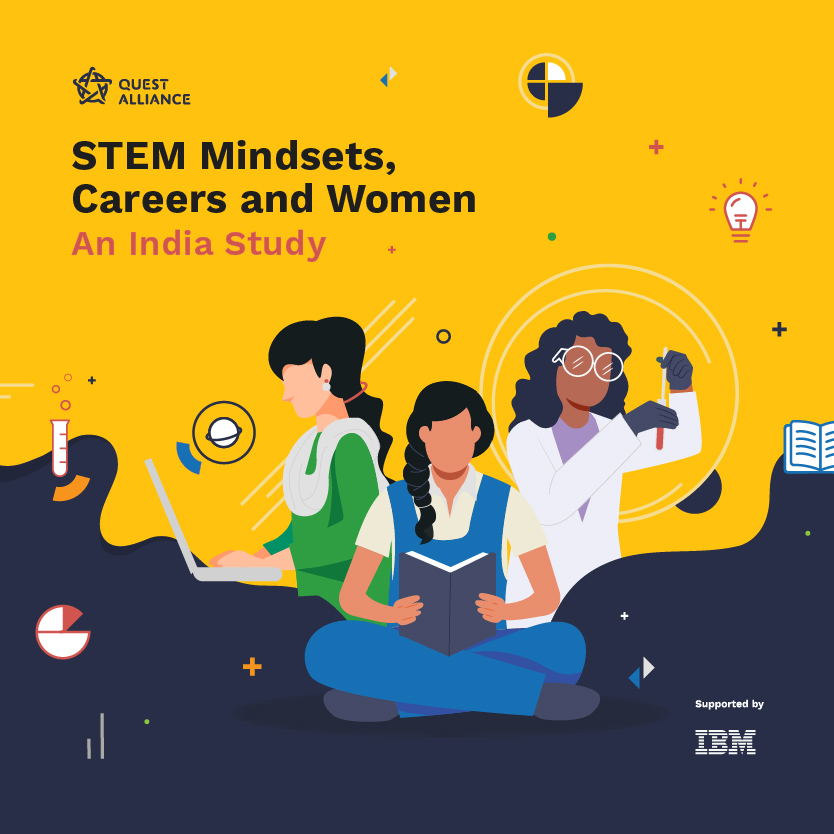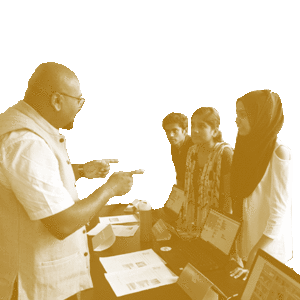Quest2Learn
Quest2Learn at Quest Alliance provides insights, resources and platforms to learn from, create and share effective change models. Its goal is to transform learning ecosystems by changing the narrative to self-learning. The Research and Advocacy Wing along with the Impact Evaluation and Monitoring Wing help drive these goals.
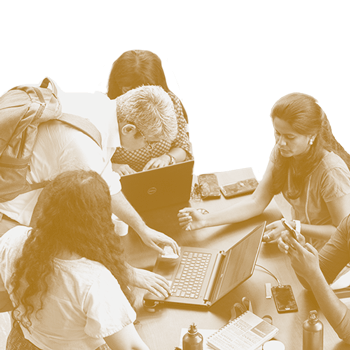
registrations
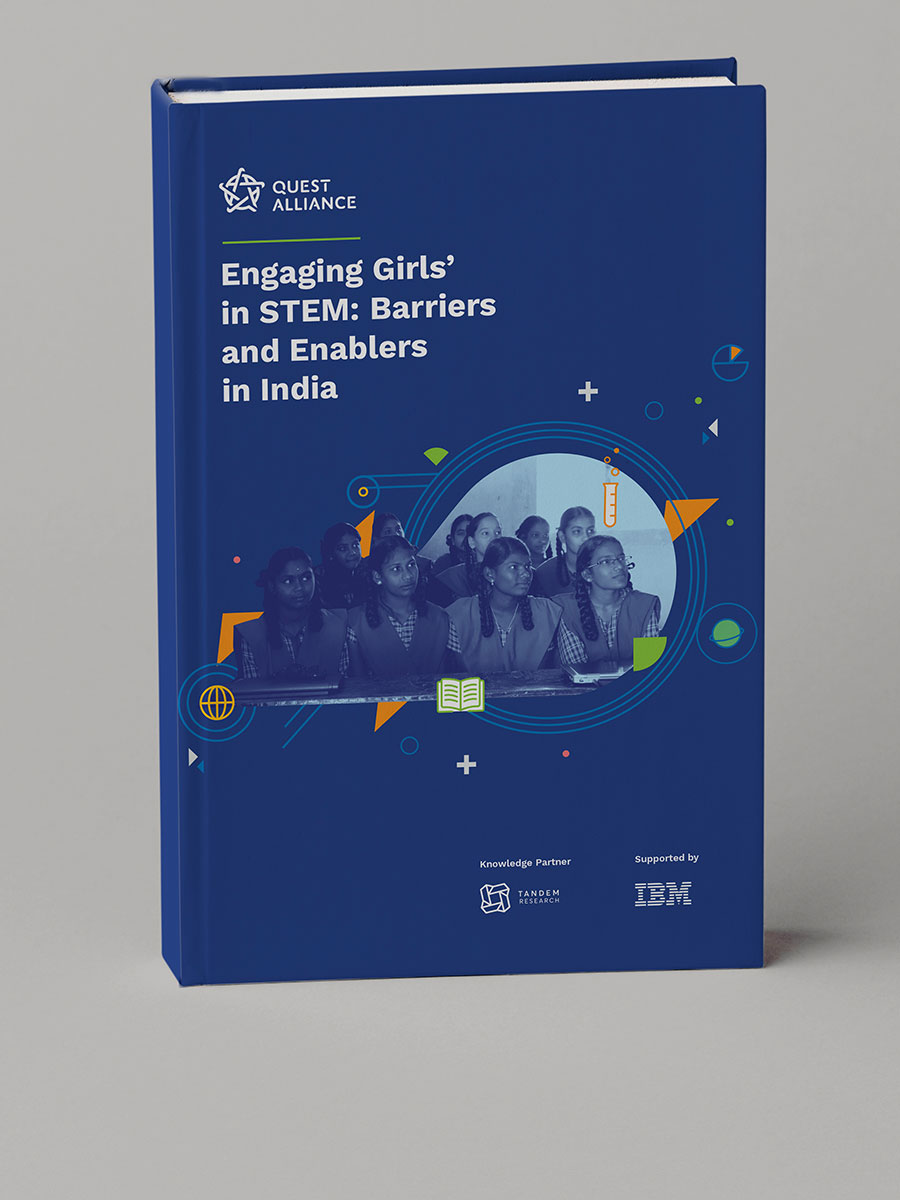
Publication: Engaging Girls in STEM: Barriers and Enablers In India
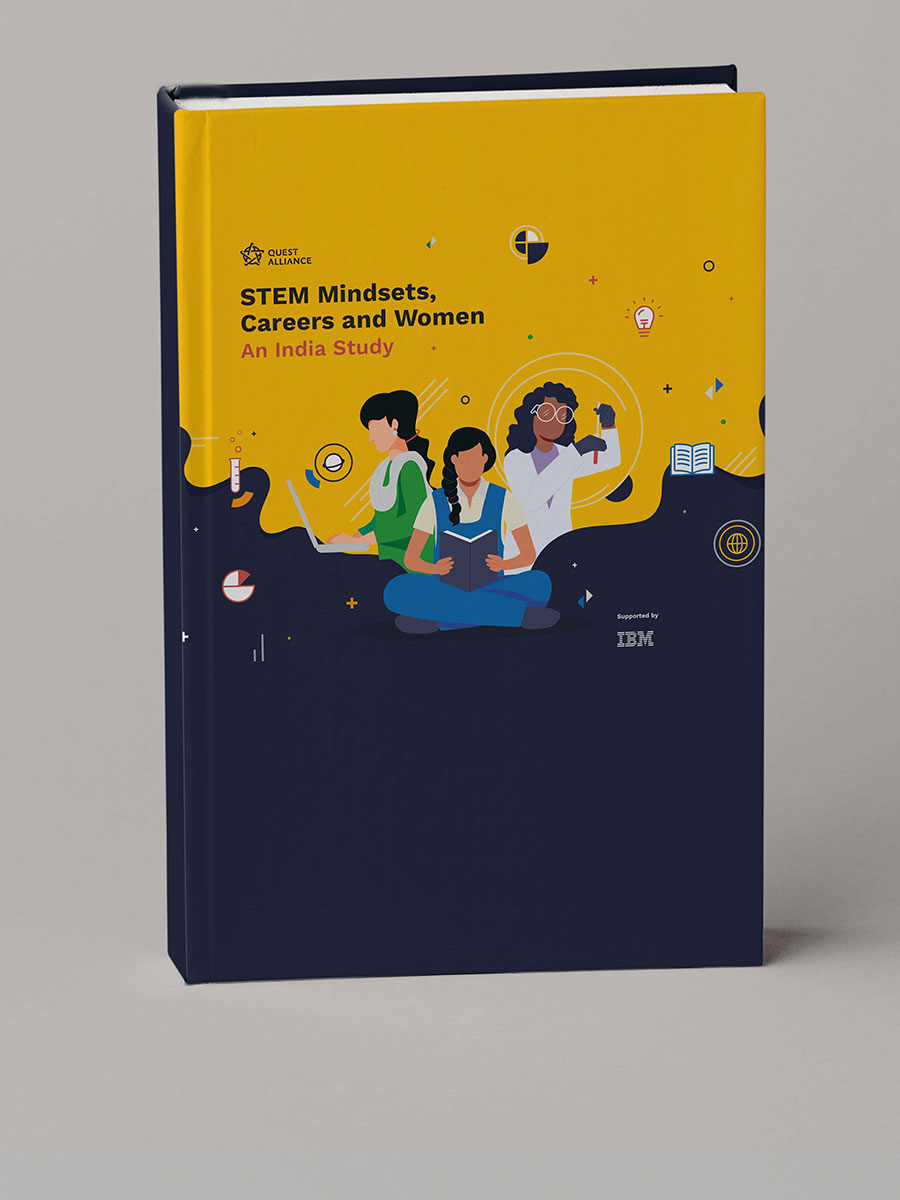
Publication: STEM Mindsets, Careers and Women - An India Study
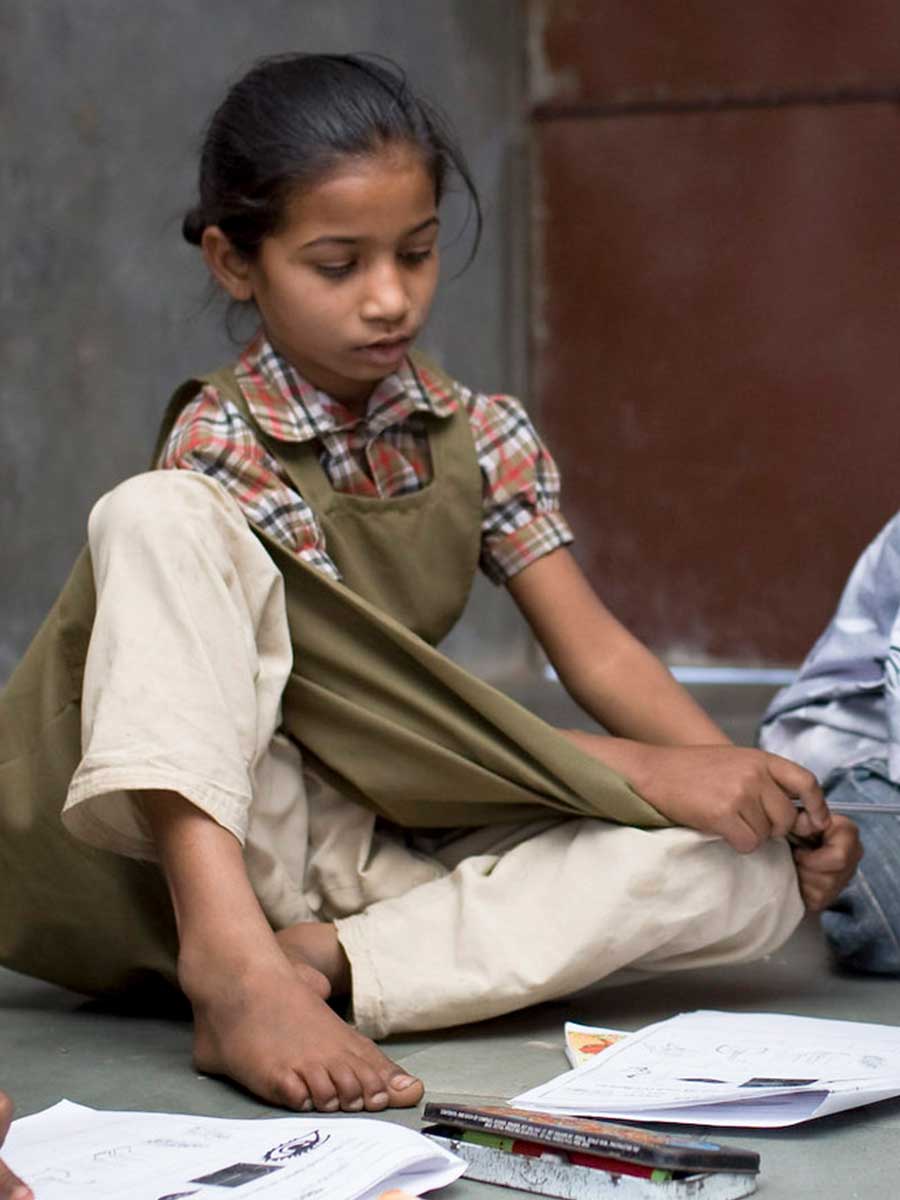
Provided opportunities to learn about trends affecting the skilling and education ecosystem in a VUCA world

knowledge webinars conducted
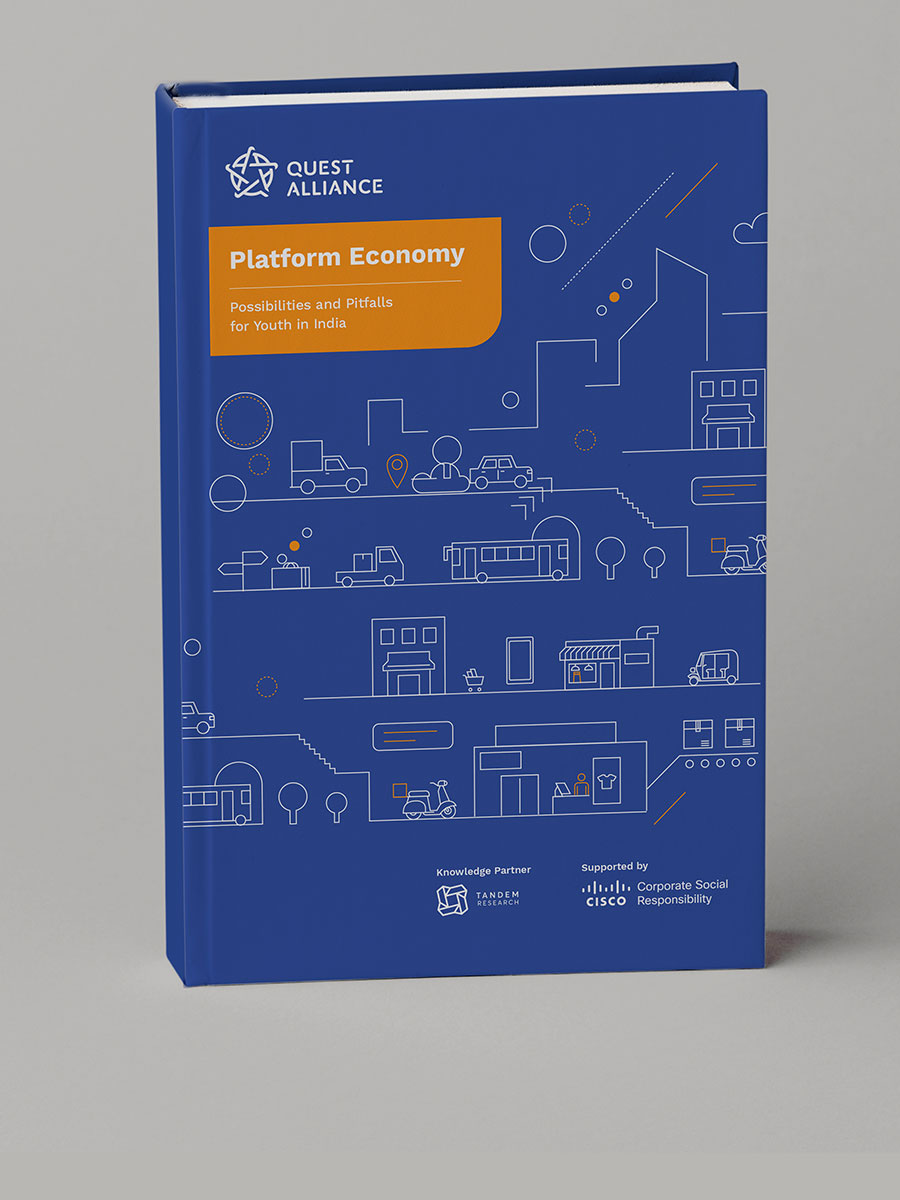
Publication: Skilling For the Future of Work - An Outlook for Youth in the Platform Economy

Publication: Self-Learning - Concepts, Principles and Strategies
Annual Summit 2020
Quest2Learn is a knowledge, innovation and organisational learning initiative at Quest Alliance. We bring together critical stakeholders from the training and education ecosystem across India and the world to share good practices and insights, engage in dialogue, analyse new trends in learning, validate approaches, and build on new ideas around the education-skills divide. This year, the virtual Quest2Learn 2020 Summit was held on 25th, 26th and 27th August 2021. Read more about Q2L here.
Blended learning for India’s classrooms: Exploring possibilities
The Covid-19 pandemic and ensuing lockdown precipitated a rapid move to online learning and teaching. With little preparation, educators and students across the board struggled to pivot to a completely digital classroom. For students from socio-economically disadvantaged communities, the lack of access to digital devices and reliable internet connectivity further exacerbated the barriers they normally face in accessing learning.
To explore options for navigating this access gap, Quest Alliance hosted a webinar under the Quest2Learn initiative, which brought together 200+ learners, educators, sector practitioners, government representatives, civil society partners and a panel of experts to share strategies and insights on what worked, and what could be improved to make learning more equitable and accessible to all. We noted that beliefs that “learning cannot happen online” needed to be addressed, and blended learning presents opportunities for flexible learning, especially in learner autonomy.
Looking to the Future:
Gender and STEM
Under the IBM STEM for Girls program, a two-part research study was conducted to understand key STEM mindsets required from a future of work and learning perspective.
The first part provided insight into skill sets and attitudes crucial for the 21st-century workplace, while the second part sought to identify the current gaps in the school ecosystem to build these essential skills and mindsets in students.
The studies revealed that STEM mindsets and behaviours - like Tinkering, Risk Taking, Problem Solving and Analytical Thinking, among others, are essential across all sectors, and not restricted only to STEM fields. The studies further revealed that within the current education system, girls are structurally at a disadvantage to access and hone these skills. Other findings also pointed to inherent biases among teachers in the understanding of subjects in which girls may excel, and that teachers themselves are not able to model a STEM mindset within their classrooms. Recommendations basis these findings suggest a greater focus on building spaces for students to develop a STEM mindset. In addition, building capacities of adolescents to aspire to better lives and futures, and a systemic approach to transform STEM from a mere set of subjects to an actual mindset is essential.
The third study, (released post-March 2021) building on these insights, noted that within the current education system girls are structurally at a disadvantage to access and hone these skills.
Publications
